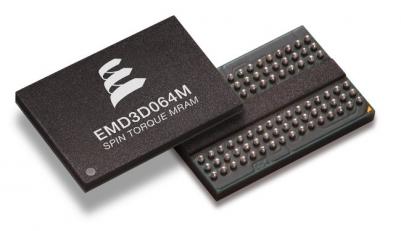20 chipmakers from Japan and US to co-develop MRAM in hopes to replace DRAM within 3 years
According to Nikkei, over 20 Japanese and US companies have teamed up to develop MRAM technologies, in particular a new mass production method. Participants in this ambitious project include Tokyo Electron (who's merging with Applied Materials), Renasas, Hitachi and Shin-Etsu Chemical from Japan and Micron Technology from the US.
Japan's Tohoku University, a leader in Spintronics and MRAM research, will also join the project. The companies will finance several dozens researchers at the University. They plan to start development in February 2014, and continue to seek more companies from the US and Europe to join. The aim is to complete materials and processes development by 2017 and start mass production by 2018.



